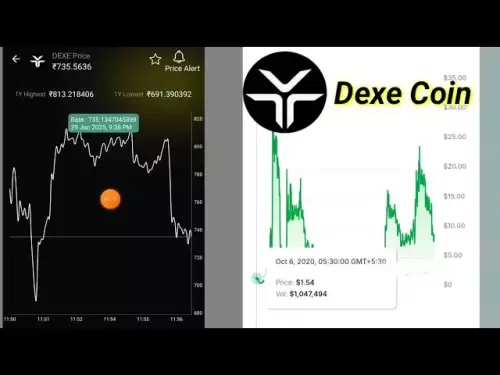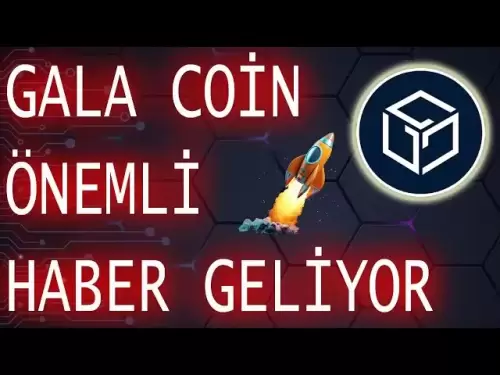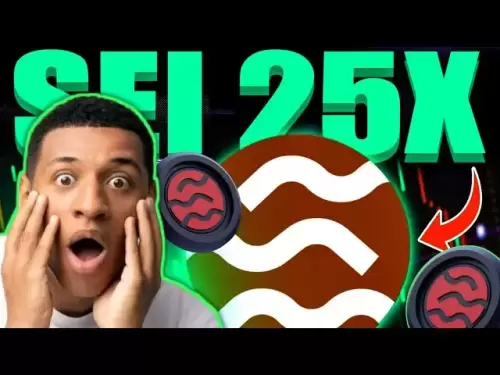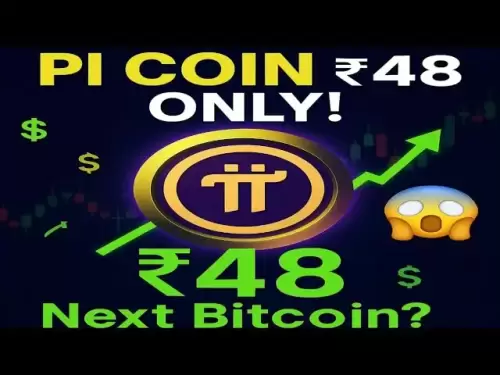-
 Bitcoin
Bitcoin $108,639.5535
1.29% -
 Ethereum
Ethereum $2,507.1944
3.16% -
 Tether USDt
Tether USDt $1.0003
0.00% -
 XRP
XRP $2.1982
0.65% -
 BNB
BNB $654.1814
0.99% -
 Solana
Solana $152.3907
1.88% -
 USDC
USDC $0.9998
-0.01% -
 TRON
TRON $0.2763
0.40% -
 Dogecoin
Dogecoin $0.1683
3.32% -
 Cardano
Cardano $0.5716
1.42% -
 Hyperliquid
Hyperliquid $40.7564
8.17% -
 Bitcoin Cash
Bitcoin Cash $500.5813
1.41% -
 Sui
Sui $2.8642
2.51% -
 Chainlink
Chainlink $13.5555
1.79% -
 UNUS SED LEO
UNUS SED LEO $9.1649
0.51% -
 Avalanche
Avalanche $18.4650
3.41% -
 Stellar
Stellar $0.2386
0.24% -
 Toncoin
Toncoin $2.8878
1.59% -
 Shiba Inu
Shiba Inu $0.0...01168
1.67% -
 Litecoin
Litecoin $87.6955
2.00% -
 Hedera
Hedera $0.1517
3.12% -
 Monero
Monero $312.6714
1.11% -
 Polkadot
Polkadot $3.5008
3.27% -
 Bitget Token
Bitget Token $4.6166
-0.55% -
 Dai
Dai $0.9999
0.00% -
 Ethena USDe
Ethena USDe $1.0002
0.01% -
 Uniswap
Uniswap $7.3109
3.98% -
 Pepe
Pepe $0.0...01008
6.25% -
 Aave
Aave $276.8587
7.04% -
 Pi
Pi $0.5277
-0.95%
How does Trust Wallet verify token contracts? How to avoid the risk of counterfeit coins?
Trust Wallet verifies token contracts using blockchain explorers like Etherscan, checking source code to protect users from counterfeit coins and financial losses.
May 07, 2025 at 01:08 pm
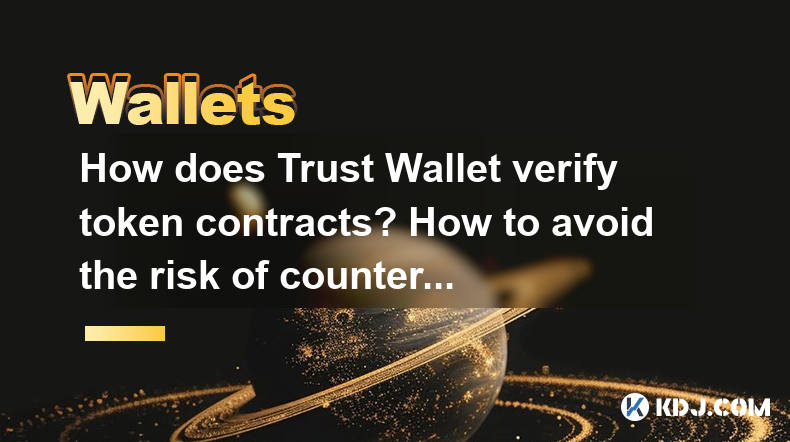
Trust Wallet, a popular mobile cryptocurrency wallet, plays a crucial role in ensuring the safety of its users by verifying token contracts. This verification process is essential for avoiding the risk of counterfeit coins, which can lead to significant financial losses. In this article, we will delve into the detailed process of how Trust Wallet verifies token contracts and provide comprehensive guidance on how to avoid the risks associated with counterfeit coins.
Understanding Token Contract Verification
Token contract verification is the process by which a wallet or platform checks the authenticity and integrity of a token's smart contract. This is crucial in the cryptocurrency world, as it helps users ensure that the tokens they are interacting with are legitimate and not fraudulent copies designed to deceive users.
Trust Wallet employs a meticulous approach to verify token contracts, primarily relying on blockchain explorers and decentralized platforms like Etherscan. By integrating with these services, Trust Wallet can access detailed information about token contracts, including their source code, which is essential for verification.
How Trust Wallet Verifies Token Contracts
To verify token contracts, Trust Wallet follows a systematic approach:
Integration with Blockchain Explorers: Trust Wallet integrates with blockchain explorers like Etherscan to access detailed information about token contracts. This integration allows the wallet to retrieve the source code of the token contract, which is crucial for verification.
Checking Source Code: Once the source code is retrieved, Trust Wallet checks it against the known source code of legitimate tokens. This comparison helps identify any discrepancies that might indicate a counterfeit token.
Verification Status: Trust Wallet displays the verification status of tokens within its interface. Tokens that have been verified by a trusted source, such as Etherscan, are marked as "Verified," indicating that their source code has been confirmed to match the original.
User Alerts: If a token is not verified, Trust Wallet may alert users to this fact, encouraging them to exercise caution before interacting with the token.
Steps to Verify Token Contracts Manually
While Trust Wallet automates much of the verification process, users can also take steps to manually verify token contracts for added security. Here is a detailed guide on how to do this:
Access Etherscan: Open your web browser and navigate to Etherscan.io. Etherscan is a popular blockchain explorer that provides detailed information about Ethereum-based tokens.
Search for the Token: Use the search bar on Etherscan to find the token you are interested in. Enter the token's name, symbol, or contract address.
Check Contract Address: Once you find the token, click on it to view its detailed page. Look for the Contract Address section. This is the unique address of the token's smart contract.
View Source Code: On the token's page, look for the Contract tab. Click on it to view the source code of the token's smart contract. If the source code is available and has been verified by Etherscan, it will be marked as "Verified."
Compare Source Code: If you have access to the original source code of the token, compare it with the source code displayed on Etherscan. Any discrepancies could indicate a counterfeit token.
Check Token Details: Review other details on the token's Etherscan page, such as the total supply, token decimals, and transaction history. These details can help you verify the legitimacy of the token.
Avoiding the Risk of Counterfeit Coins
To minimize the risk of falling victim to counterfeit coins, users can follow these best practices:
Use Verified Tokens: Always ensure that the tokens you interact with are marked as "Verified" in Trust Wallet or on blockchain explorers like Etherscan. Verified tokens have undergone a thorough verification process, reducing the risk of them being counterfeit.
Research Before Investing: Conduct thorough research on any token before investing. Look for information about the token's team, project goals, and community support. Legitimate tokens typically have a strong online presence and active community.
Avoid Suspicious Offers: Be wary of tokens that promise unusually high returns or are offered through unsolicited messages. These are often red flags for counterfeit or scam tokens.
Use Secure Wallets: Use reputable and secure wallets like Trust Wallet to store your cryptocurrencies. Secure wallets provide additional layers of protection against counterfeit tokens.
Monitor Your Transactions: Regularly monitor your transactions and token balances. If you notice any unauthorized transactions or unexpected changes in your token balances, investigate immediately.
Identifying Counterfeit Tokens
Identifying counterfeit tokens can be challenging, but there are several signs that users can look out for:
Unverified Source Code: If a token's source code is not available or has not been verified by a trusted source, it could be a counterfeit token.
Inconsistent Token Details: If the token's details, such as its total supply or token decimals, do not match the information provided by the project team, it may be a counterfeit token.
Suspicious Transaction History: A token with a suspicious transaction history, such as a large number of transactions to unknown addresses, could be a counterfeit token.
Lack of Community Support: Legitimate tokens typically have an active and supportive community. If a token lacks community support or has a negative reputation, it could be a counterfeit token.
Reporting Counterfeit Tokens
If you suspect that a token is counterfeit, it is important to report it to the relevant authorities and platforms. Here is how you can do this:
Report to Trust Wallet: If you encounter a counterfeit token in Trust Wallet, you can report it through the app's support channels. Trust Wallet's team will investigate the token and take appropriate action.
Report to Blockchain Explorers: You can also report counterfeit tokens to blockchain explorers like Etherscan. These platforms have mechanisms in place to flag and investigate suspicious tokens.
Inform the Community: Share your findings with the cryptocurrency community through forums, social media, and other channels. This can help prevent others from falling victim to the same counterfeit token.
Frequently Asked Questions
Q: Can Trust Wallet detect all counterfeit tokens?
A: While Trust Wallet employs robust verification processes, it cannot detect all counterfeit tokens. Users should always exercise caution and conduct their own research before interacting with any token.
Q: What should I do if I accidentally interact with a counterfeit token?
A: If you accidentally interact with a counterfeit token, immediately stop any further transactions with that token. Report the token to Trust Wallet and other relevant platforms, and consider seeking advice from a cryptocurrency expert.
Q: How often does Trust Wallet update its token verification status?
A: Trust Wallet regularly updates its token verification status based on information from blockchain explorers and other trusted sources. However, the frequency of these updates can vary depending on the token and the platform providing the verification.
Q: Are there any tools or services that can help me verify token contracts more effectively?
A: Yes, there are several tools and services that can help you verify token contracts more effectively. In addition to blockchain explorers like Etherscan, you can use services like TokenSniffer and TokenView, which provide detailed analysis and verification of token contracts.
Disclaimer:info@kdj.com
The information provided is not trading advice. kdj.com does not assume any responsibility for any investments made based on the information provided in this article. Cryptocurrencies are highly volatile and it is highly recommended that you invest with caution after thorough research!
If you believe that the content used on this website infringes your copyright, please contact us immediately (info@kdj.com) and we will delete it promptly.
- SEI User Activity Sparks Short Squeeze Talk as Price Nears Key Resistance
- 2025-06-30 08:30:12
- Toncoin's Traction: Decentralized Payments Stealing the Show?
- 2025-06-30 08:50:12
- ETH, Crypto, and the Validator Upgrade: Wall Street's New Darling?
- 2025-06-30 08:50:12
- MAGACOIN FINANCE: The Political Meme Coin Shaking Up Crypto in 2025
- 2025-06-30 09:10:12
- Crypto Presale Top Picks for 2025: What's Hot and What's Not
- 2025-06-30 09:30:12
- Qubetics, CEX Debut, and Injective Stellar: A New Yorker's Take on the Crypto Scene
- 2025-06-30 09:30:12
Related knowledge
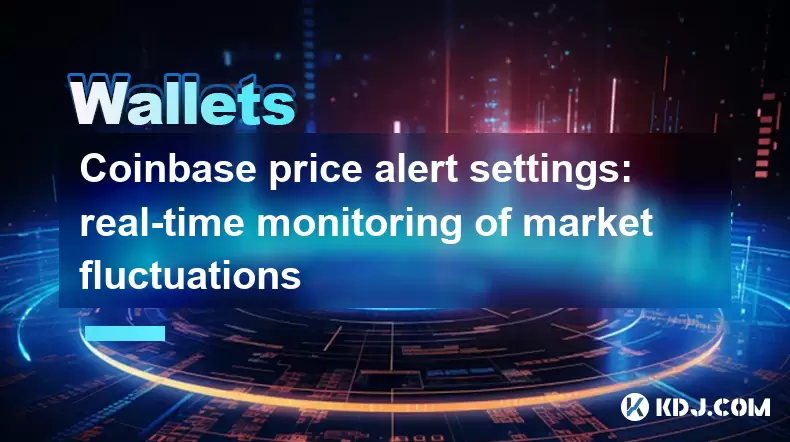
Coinbase price alert settings: real-time monitoring of market fluctuations
Jun 29,2025 at 07:00am
Setting Up Coinbase Price AlertsTo begin real-time monitoring of market fluctuations on Coinbase, users can utilize the built-in price alert feature. This function allows you to receive notifications when a cryptocurrency reaches a specific price point. To access this setting, open the Coinbase app or log in via the web platform. Navigate to the 'Prices...

How to stake cryptocurrencies on Coinbase? Benefits and risks
Jun 27,2025 at 06:36pm
Understanding Cryptocurrency Staking on CoinbaseStaking cryptocurrencies involves locking up digital assets to support the operations of a blockchain network, typically in return for rewards. Coinbase, one of the most popular cryptocurrency exchanges globally, offers staking services for several proof-of-stake (PoS) coins. Users can stake their holdings...
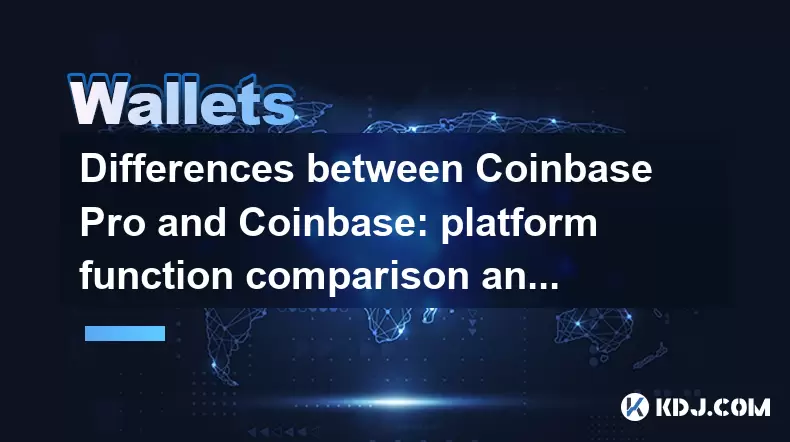
Differences between Coinbase Pro and Coinbase: platform function comparison and analysis
Jun 29,2025 at 08:21am
Overview of Coinbase and Coinbase ProWhen exploring the cryptocurrency trading landscape, users often encounter two platforms under the same parent company: Coinbase and Coinbase Pro. While both are operated by the same organization, they cater to different types of users and offer varying features. Coinbase is primarily designed for beginners and casua...
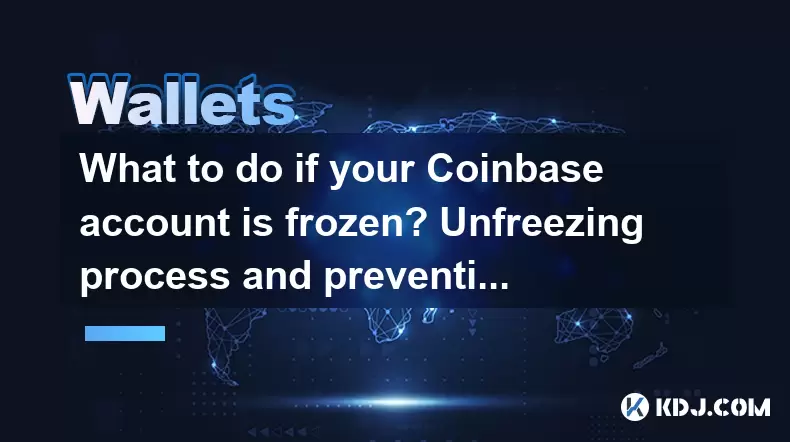
What to do if your Coinbase account is frozen? Unfreezing process and preventive measures
Jun 30,2025 at 03:49am
Understanding Why Your Coinbase Account Might Be FrozenIf your Coinbase account is frozen, it typically indicates that the platform has detected suspicious activity or potential violations of its terms of service. This could be due to a variety of reasons such as unusual login attempts, high-risk transactions, or incomplete verification steps. Coinbase ...

How to contact Coinbase customer service? Support channels and response times
Jun 28,2025 at 01:29pm
Contacting Coinbase Customer Service: Support Channels and Response TimesIf you're a user of Coinbase, reaching their customer service team may become necessary for various reasons, such as account verification issues, transaction disputes, or technical difficulties. Understanding the different support channels available and what to expect in terms of r...

Coinbase advanced trading function usage tutorial: limit orders and market orders
Jun 28,2025 at 09:07pm
Understanding the Difference Between Limit Orders and Market OrdersWhen using Coinbase's advanced trading features, it is crucial to understand the fundamental difference between limit orders and market orders. A market order executes immediately at the best available price on the market. This type of order ensures that your trade goes through quickly, ...

Coinbase price alert settings: real-time monitoring of market fluctuations
Jun 29,2025 at 07:00am
Setting Up Coinbase Price AlertsTo begin real-time monitoring of market fluctuations on Coinbase, users can utilize the built-in price alert feature. This function allows you to receive notifications when a cryptocurrency reaches a specific price point. To access this setting, open the Coinbase app or log in via the web platform. Navigate to the 'Prices...

How to stake cryptocurrencies on Coinbase? Benefits and risks
Jun 27,2025 at 06:36pm
Understanding Cryptocurrency Staking on CoinbaseStaking cryptocurrencies involves locking up digital assets to support the operations of a blockchain network, typically in return for rewards. Coinbase, one of the most popular cryptocurrency exchanges globally, offers staking services for several proof-of-stake (PoS) coins. Users can stake their holdings...

Differences between Coinbase Pro and Coinbase: platform function comparison and analysis
Jun 29,2025 at 08:21am
Overview of Coinbase and Coinbase ProWhen exploring the cryptocurrency trading landscape, users often encounter two platforms under the same parent company: Coinbase and Coinbase Pro. While both are operated by the same organization, they cater to different types of users and offer varying features. Coinbase is primarily designed for beginners and casua...

What to do if your Coinbase account is frozen? Unfreezing process and preventive measures
Jun 30,2025 at 03:49am
Understanding Why Your Coinbase Account Might Be FrozenIf your Coinbase account is frozen, it typically indicates that the platform has detected suspicious activity or potential violations of its terms of service. This could be due to a variety of reasons such as unusual login attempts, high-risk transactions, or incomplete verification steps. Coinbase ...

How to contact Coinbase customer service? Support channels and response times
Jun 28,2025 at 01:29pm
Contacting Coinbase Customer Service: Support Channels and Response TimesIf you're a user of Coinbase, reaching their customer service team may become necessary for various reasons, such as account verification issues, transaction disputes, or technical difficulties. Understanding the different support channels available and what to expect in terms of r...

Coinbase advanced trading function usage tutorial: limit orders and market orders
Jun 28,2025 at 09:07pm
Understanding the Difference Between Limit Orders and Market OrdersWhen using Coinbase's advanced trading features, it is crucial to understand the fundamental difference between limit orders and market orders. A market order executes immediately at the best available price on the market. This type of order ensures that your trade goes through quickly, ...
See all articles





















